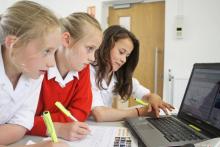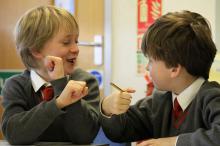Nurturing Independent Thinkers from the Start
At St John’s College School, we believe that curiosity is not just a phase it’s a lifelong gift. Our youngest children arrive full of questions, rich with wonder and eager to explore. These instincts are precious, and we work deliberately to preserve and strengthen them. From the earliest age, we embed critical thinking and independent learning into every aspect of our curriculum.
Teaching Children to Ask Better Questions
We don’t just teach knowledge we teach children how to think. From Reception onwards, pupils are encouraged to ask questions, reflect on their ideas, and explore topics that genuinely interest them. We discuss what makes a good question, and we invite children to shape their own inquiries. By the time they are eight, our pupils are already engaging with philosophy learning not just what to think, but how to think.
Knowledge Anchors Us But Learning Sustains Us
Knowledge is essential. It gives children a foundation and a sense of place in the world. But knowledge alone is not enough. What truly endures is the habit of learning: the ability to listen, to collaborate, to focus, and to communicate with clarity and empathy. These are the skills that prepare children not just for exams, but for life.
Building the Skills for Lifelong Learning
Our approach helps children understand how they learn best. They explore memory techniques, organisation strategies, and metacognitive tools. Pupils learn to assess their own work, respond to feedback, and reflect on their progress. In doing so, they take ownership of their learning and begin to see themselves as capable, independent learners.
A Curriculum That Celebrates Curiosity and Confidence
At every stage, our curriculum is designed to stretch thinking, spark imagination, and build resilience. Whether through philosophy discussions, pupil-led investigations, or collaborative projects, children are given the space to grow intellectually and emotionally. We want them to leave us not only with strong academic foundations, but with the confidence to ask questions, challenge ideas, and continue learning long after they leave the classroom.




